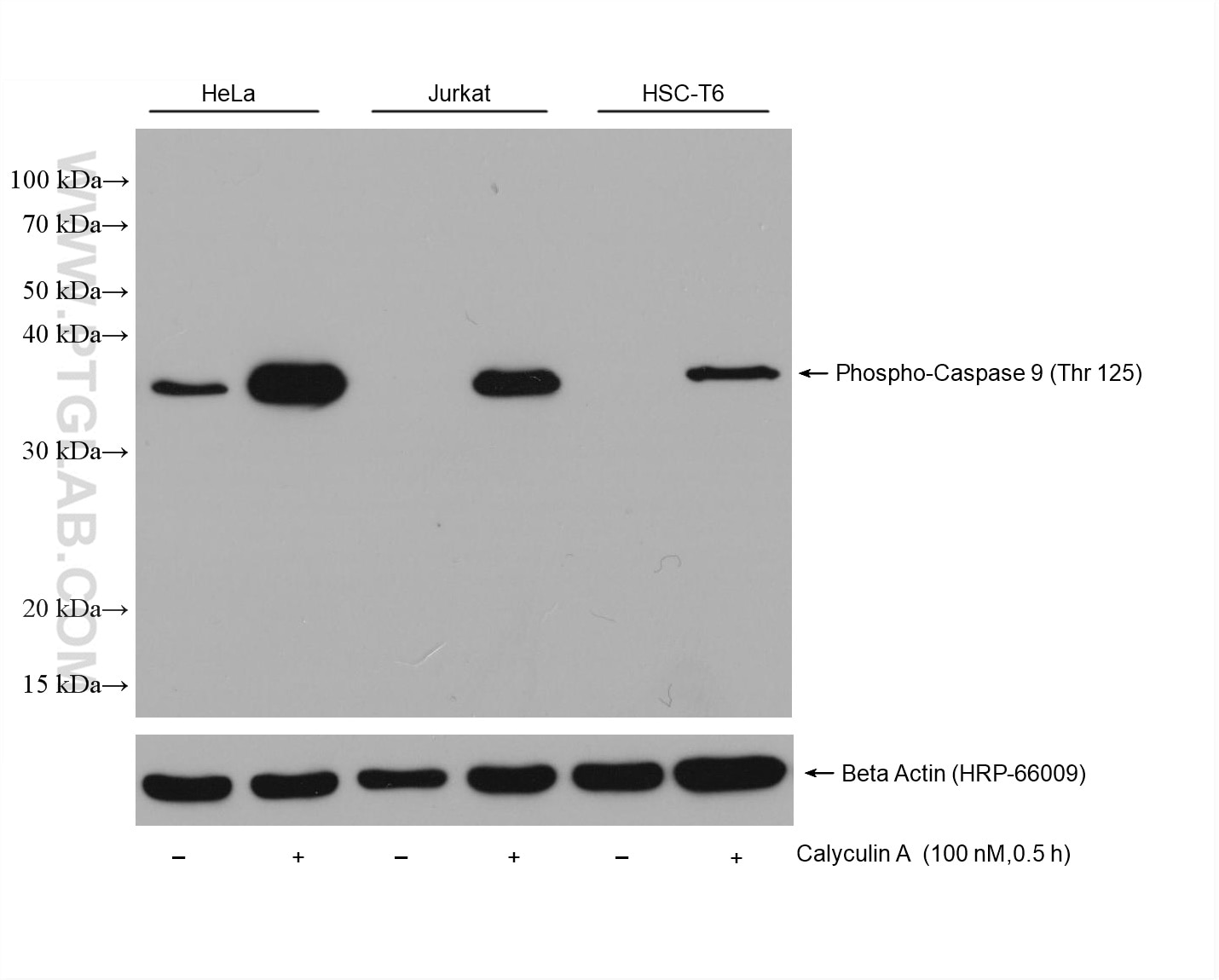Phospho-Caspase 9 (Thr125) Monoklonaler Antikörper
Phospho-Caspase 9 (Thr125) Monoklonal Antikörper für WB, Indirect ELISA
Wirt / Isotyp
Maus / IgG1
Getestete Reaktivität
human, Ratte
Anwendung
WB, Indirect ELISA
Konjugation
Unkonjugiert
CloneNo.
1B5E11
Kat-Nr. : 68136-1-PBS
Synonyme
Geprüfte Anwendungen
Produktinformation
68136-1-PBS bindet in WB, Indirect ELISA Phospho-Caspase 9 (Thr125) und zeigt Reaktivität mit human, Ratten
| Getestete Reaktivität | human, Ratte |
| Wirt / Isotyp | Maus / IgG1 |
| Klonalität | Monoklonal |
| Typ | Antikörper |
| Immunogen | Peptid |
| Vollständiger Name | caspase 9, apoptosis-related cysteine peptidase |
| Berechnetes Molekulargewicht | 46 kDa |
| Beobachtetes Molekulargewicht | 36 kDa |
| GenBank-Zugangsnummer | BC002452 |
| Gene symbol | Caspase 9 |
| Gene ID (NCBI) | 842 |
| Konjugation | Unkonjugiert |
| Form | Liquid |
| Reinigungsmethode | Protein-A-Reinigung |
| Lagerungspuffer | PBS only |
| Lagerungsbedingungen | Store at -80°C. 20ul Größen enthalten 0,1% BSA. |
Hintergrundinformationen
Caspase 9 also name as MCH6, APAF3, APAF-3, ICE-LAP6 and CASPASE-9c, is a member of the cysteine-aspartic acid protease (caspase) family. It's synthesized as a 46 kDa precursor protein which can be cleaved into a 35 kDa subunit and a 11 kDa subunit. Control of all caspases is tightly regulated by a series of phosphorylation events enacted by several different kinases. Caspase-9 is the most heavily phosphorylated of all caspases, with phosphorylation of at least 11 distinct residues in all three caspase-9 domains by nine kinases. It plays a central role in the mitochondrial or intrinsic apoptotic pathway that is engaged in response to many apoptotic stimuli. Once activated, caspase-9 cleaves and activates the effector caspases 3 and 7 to bring about apoptosis. It's reported that there is an increase in caspase 9 expression and activity in the hypoxic brain. Inhibition of Caspase 9 activity would render opportunity to treat neurological diseases such as stroke, neurodegenerative diseases or brain injury caused by hypoxia. (PMID: 19788417, PMID: 10529400, PMID: 9812896, PMID: 18840507, PMID: 29066624)



